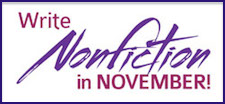 Many people don’t believe they are writers. However, they want to become authors. This leaves them in a quandary. They want and—maybe need—a book, but they don’t feel they can write it.
Many people don’t believe they are writers. However, they want to become authors. This leaves them in a quandary. They want and—maybe need—a book, but they don’t feel they can write it.
Others are in a hurry and don’t have the time to write, even though they know they can.
If you are one of these aspiring authors, stop stressing! If you can speak, you can write—and fast. How is that possible? You can speak your book. In fact, you can speak it in a month.
5 Steps to Speak Your Book
Here’s a methodology for speaking a book that I use successfully with my clients who aren’t comfortable writing or who want to get their book written fast. This method is easy, quick and more affordable than hiring a ghostwriter. Plus, it produces a book filled with their own knowledge and experience offered in their own voice.
If you need to speak, rather than write, your book to get it done in a month,or just want to try this method, here are the exact steps I use with my clients to get their books out of their heads and onto paper—without them typing hardly a word.
- Mind map the idea. Start by brainstorming the book idea. You may have only a general topic, but work until you fine-tune this to a subject and an angle. End up with a table of contents—a list of topics you will cover in each chapter. This provides you with the basic structure for the book.
- Create a detailed table of contents. Continue brainstorming, or mind mapping, until you have more content than just chapter titles or subjects. Then, take the smaller subjects you thought of during the mind mapping process and place them in your table of contents under the appropriate chapter. These could be used as subheadings in your chapter, and you can set them up as such in your table of contents. Also, create bullet points under each subheading to remind you of the topics you want to discuss. Take the time to make notes, if necessary, on each chapter, subheading, bullet point, or topic, so you feel sure you know what you want to say for each one. The point is to get as detailed as possible (without writing the book). Imagine this like a PowerPoint presentation. You need enough information so you spark your memory and you know what to say, but you don’t necessarily want to write out everything in sentences and paragraphs.
- Speak your book chapter by chapter. Using the detailed table of contents, speak your book into a digital recorder. You also can use a free teleseminar line.
- Get your recordings transcribed. Hire a transcriptionist to take your audio recordings and turn them into a Word document. Or use Word’s dictation system or a program like Dragon Naturally Speaking as you record your book during the previous step. This avoids the cost of transcription.
- Edit your transcripts. Tackle your manuscript once yourself before hiring an editor. This saves you money. It gives you the chance to ensure what you said made sense. (Often what we say is unintelligible.) Once you’ve done this, send it on to a professional book editor for a round or two (or three) of developmental editing and then a round of line editing.
Bonus tip: If step #3, speaking your book chapter by chapter, feels awkward to you, turn your detailed table of contents into questions. Then have someone interview you. Record your answers into a recorder (or use a teleseminar line), and follow the rest of the steps.
To do this in a month, create a schedule. If you have 12 chapters, then you need about 12 hours to speak each of those chapters—possibly less if they are short. With four weeks, that means you need just three hours per week to get your book spoken.
Leave time for a transcriptionist to do his or her magic; maybe one chapter could be transcribed per week. Then you give yourself a few hours per chapter for editing and revising.
Viola! You have a full manuscript.
How much editing that document still needs varies, but if you’ve planned out your book in fine detail—the more detail the better—and stuck to that detail as you spoke your book, it should be in pretty good shape. You also need to have created a sound book structure in those early stages. If you didn’t, a developmental editor will find many reasons to move content around and make other major changes.
Once editing is complete, your book is ready for cover design and interior design, if you want a print book, and proofreading. Then you can publish and start boosting your business as an author as well as an entrepreneur.
Resources:
About the Author
 Nina Amir, the bestselling author of How to Blog a Book and The Author Training Manual, is a speaker, a blogger, and an author, book, and blog-to-book coach. Known as the Inspiration to Creation Coach, she helps creative people combine their passion and purpose so they move from idea to inspired action and gain the ability to positively and meaningfully impact the world as writers, bloggers, authorpreneurs, and blogpreneurs. Some of Nina’s clients have sold 300,000+ copies of their books, landed deals with major publishing houses and created thriving businesses around their books. She is the founder of National Nonfiction Writing Month, aka the Write Nonfiction in November Challenge, and the Nonfiction Writers’ University.
Nina Amir, the bestselling author of How to Blog a Book and The Author Training Manual, is a speaker, a blogger, and an author, book, and blog-to-book coach. Known as the Inspiration to Creation Coach, she helps creative people combine their passion and purpose so they move from idea to inspired action and gain the ability to positively and meaningfully impact the world as writers, bloggers, authorpreneurs, and blogpreneurs. Some of Nina’s clients have sold 300,000+ copies of their books, landed deals with major publishing houses and created thriving businesses around their books. She is the founder of National Nonfiction Writing Month, aka the Write Nonfiction in November Challenge, and the Nonfiction Writers’ University.
Copyright: kuzma / 123RF Stock Photo. Amazon links contain my affiliate code.






Judith (Judy) Rosenfield says
Hello,
I’ve been a Speech Language Pathologist for about 35 years, and have just a couple of publications under my belt ( A clinical assessment tool, and a chapter in someone else’s book). Around 12 years ago, I developed a program called, Wait Your Turn, which I use in my private practice, King’s Speech & Learning Center. However, I never did anything with the program outside of my practice. A few years later, in 2014, I began to write a book on the Wait Your Turn approach to boosting social language development in children. I stopped writing for no significant reason, and never picked it up again. Now, more than ever, I would like to resume writing and complete the book as it relates to social language skills which have become more important than ever in child development due to the impact of the Covid pandemic.
I heard of your consulting service from my husband who heard about it on a podcast, and it sounds perfect for what I need right now! I believe the reason I never completed the project is due to my fear of failure. I am now ready, with some assistance, to just go for it!
Nina Amir says
Reach out to me, Judith. We can chat: https://ninaamir.as.me/15-min-strategy-session You should definitely write that book! Love the idea.